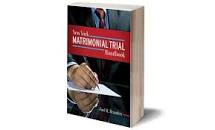
Trial Testimony - Cross - Examination - Impeachment of Witnesses
A witness may be impeached by questioning his reputation for veracity, his perception, recollection or memory, by showing he is biased (an irrational predisposition in favor) or prejudiced (an irrational pre-disposition against, that he has an interest at stake in the outcome of the litigation, that he is corrupt or has been bribed, that he has a prior conviction, that he committed prior bad acts (immoral, criminal, vicious), and that he has made prior inconsistent statements. A witness may be impeached by showing his bias, hostility or Interest.[1]
A witness may be cross-examined with respect to specific immoral, vicious or criminal acts which bear upon the witness's credibility. Generally, the nature and scope of the cross-examination is discretionary with the trial court.[2] However, the inquiry must have some tendency to show moral turpitude to be relevant to the credibility issue.[3]
Cross-examination relative to specific misconduct must be based upon reasonable grounds and pursued in good faith. [4] A witness may not be asked about conduct which was the subject of criminal charges when those charges resulted in an acquittal.[5]
[1] Richardson on Evidence, 11th Edition, 6-415.
[2] Carr v. Atchison, 166 AD2d 172, 173, 564 NYS2d 67 (1 Dept. 1990); People v. Bolling, 167 AD2d 345, 346, 561 NYS2d 308 (2 Dept. 1990); People v. Coleman, 56 NY2d 269, 273, 451 NYS2d 705 (1983).
[3] Badr v. Hogan, 75 NY2d 629, 634, 555 NYS2d 249 (1990).
[4] People v. Greer, 42 NY2d 170 (1977); People v. Schwartzman, 24 NY2d 241, 245 (1969), cert den 396 US 846 (1969); People v. Alamo, 23 NY2d 630, 298 NYS2d 681 (1969).
[5] People v. Santiago, 15 NY2d 640 (1964).
A witness may be impeached by questioning his reputation for veracity, his perception, recollection or memory, by showing he is biased (an irrational predisposition in favor) or prejudiced (an irrational pre-disposition against, that he has an interest at stake in the outcome of the litigation, that he is corrupt or has been bribed, that he has a prior conviction, that he committed prior bad acts (immoral, criminal, vicious), and that he has made prior inconsistent statements. A witness may be impeached by showing his bias, hostility or Interest.[1]
A witness may be cross-examined with respect to specific immoral, vicious or criminal acts which bear upon the witness's credibility. Generally, the nature and scope of the cross-examination is discretionary with the trial court.[2] However, the inquiry must have some tendency to show moral turpitude to be relevant to the credibility issue.[3]
Cross-examination relative to specific misconduct must be based upon reasonable grounds and pursued in good faith. [4] A witness may not be asked about conduct which was the subject of criminal charges when those charges resulted in an acquittal.[5]
[1] Richardson on Evidence, 11th Edition, 6-415.
[2] Carr v. Atchison, 166 AD2d 172, 173, 564 NYS2d 67 (1 Dept. 1990); People v. Bolling, 167 AD2d 345, 346, 561 NYS2d 308 (2 Dept. 1990); People v. Coleman, 56 NY2d 269, 273, 451 NYS2d 705 (1983).
[3] Badr v. Hogan, 75 NY2d 629, 634, 555 NYS2d 249 (1990).
[4] People v. Greer, 42 NY2d 170 (1977); People v. Schwartzman, 24 NY2d 241, 245 (1969), cert den 396 US 846 (1969); People v. Alamo, 23 NY2d 630, 298 NYS2d 681 (1969).
[5] People v. Santiago, 15 NY2d 640 (1964).
The material on our website is from the New York Matrimonial Trial Handbook , by Joel R. Brandes of the New York Bar. It focuses on the procedural and substantive law, as well as the law of evidence, that an attorney must have at his or her fingertips when trying a New York matrimonial action or custody case. It is intended to be an aide for preparing for a trial and as a reference for the procedure in offering and objecting to evidence during a trial. There are numerous questions for the examination and cross-examination of witnesses.
Joel R. Brandes Consulting Services, Inc. publishes The New York Matrimonial Trial Handbook . It is available in Bookstores, and online in the print edition at Amazon, Barnes & Noble, Goodreads and other online book sellers.
The New York Matrimonial Trial Handbook is available in Kindle ebook editions and epub ebook editions for all ebook readers in our website bookstore and in hard cover at our Bookbaby Bookstore.
The New York Matrimonial Trial Handbook is available in Kindle ebook editions and epub ebook editions for all ebook readers in our website bookstore and in hard cover at our Bookbaby Bookstore.
|
Joel R. Brandes Consulting Services, Inc.
2881 NE 33rd Court (At Dock) Ft. Lauderdale, Florida 33306. Telephone (954) 564-9883. email to:[email protected]. Joel R. Brandes Consulting Services, Inc is a Florida corporation which is owned and operated by
Joel R. Brandes of The New York Law Firm of Joel R. Brandes. P.C. |
This website is published by Joel R. Brandes Consulting Services, Inc., and written by Joel R. Brandes of The Law Firm of Joel R. Brandes. P.C. Mr. Brandes has been recognized by the Appellate Division* as a "noted authority and expert on New York family law and divorce.” He is the author of the treatise Law and The Family New York, 2d (9 volumes),Law and the Family New York Forms 2d (5 Volumes), Law and the Family New York Forms 2019 Edition (5 volumes)(Thomson Reuters), and the New York Matrimonial Trial Handbook. Click here to visit New York Divorce and Family Law ™ the definitive site on the web for New York divorce and family law, presented by Joel R. Brandes of the Law Firm of Joel R. Brandes, P.C., 43 West 43rd Street, New York, New York 10036. (212) 859-5079.
|